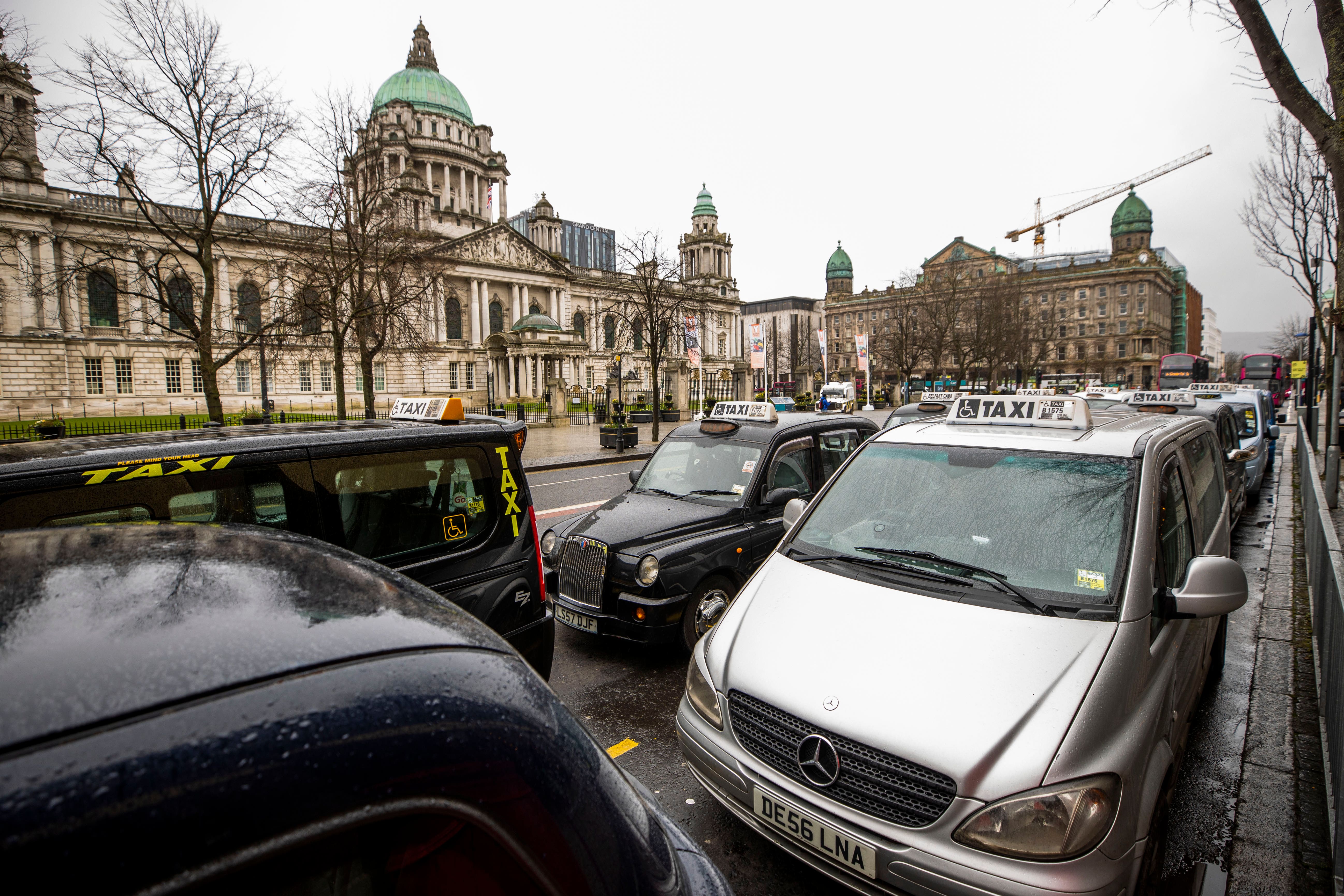Active taxi driver numbers in Northern Ireland drop to 5,719 amid VAT fears
The industry has voiced fears that a proposed legislative change will see fares increase by 20% and firms put out of business.

Your support helps us to tell the story
From reproductive rights to climate change to Big Tech, The Independent is on the ground when the story is developing. Whether it's investigating the financials of Elon Musk's pro-Trump PAC or producing our latest documentary, 'The A Word', which shines a light on the American women fighting for reproductive rights, we know how important it is to parse out the facts from the messaging.
At such a critical moment in US history, we need reporters on the ground. Your donation allows us to keep sending journalists to speak to both sides of the story.
The Independent is trusted by Americans across the entire political spectrum. And unlike many other quality news outlets, we choose not to lock Americans out of our reporting and analysis with paywalls. We believe quality journalism should be available to everyone, paid for by those who can afford it.
Your support makes all the difference.The number of active taxi drivers in Northern Ireland has dropped to 5,719 while a proposed legislative change could increase fares and put firms out of business, a Stormont committee has heard.
The Department of Infrastructure has proposed changing taxi operator licensing regulation following court cases in England and Wales.
Appearing before the Stormont Infrastructure Committee, Stephen Anton of the Licensed Taxi Operators Association outlined that in 2014 there were nearly 16,000 taxi licences in Northern Ireland.
He said the number of taxi licences in December 2023 was 7,500.
However, he said that is simply the number of licences, not the number of active taxi drivers.
“In order to be a licensed taxi driver operating, you have to be affiliated to a taxi operator, and in January of this year there were 5,719 affiliated drivers, and we know from our own experience that on any given week around 80-85% of the taxi drivers who are working are actually out working if you take out holidays and sickness and so on,” he told the committee.
“So on any given week you are looking at around 5,000 drivers operating across the whole of Northern Ireland.”
Mr Anton raised concern about the impact of a proposed legislative change which he said, if implemented, could increase fares by 20% and has the potential to close operators.
The proposed change to the Taxi Operators Licensing Regulations (Northern Ireland) 2012 follows the outcome of a number of court proceedings in England and Wales.
Many of the small operators do not have the administration capability to be able to handle the tax returns and VAT returns that we’re talking about
He said while on paper it looks like a simple change, the status of a taxi operator from agent to principal, in context with HMRC legislation it can have “huge implications”.
He said operators or drivers with total annual fares of £90,000 or more will have to charge VAT on all bookings.
“Many of the small operators do not have the administration capability to be able to handle the tax returns and VAT returns that we’re talking about, and as well as putting the price up, it has the potential to put small operators and drivers off the road,” he said.
He said the change could also mean having to stop cash payments and telephone bookings in order to keep abreast of the numbers for tax and VAT.
“As well as putting the price up potentially by 20%, this change of legislation also has the potential to rule out anybody who only has the cash option and then take those people, such as a elderly, those who are not tech savvy, those who are perhaps blind or disabled, and can’t use a web platform, stops them from using services as well,” he said.
“Should the legislation be approved, the industry will adapt and the larger operators will survive. They will collect the VAT for HMRC with the additional costs for doing so, but there will be hugely increased costs for the public.”
Mr Anton also urged the committee to back a review of the sector.
Cathy Mallie from Clanrye Taxis in Newry said firms in rural areas are struggling, having not recovered from the pandemic, and having trouble securing drivers because of the demands on qualifying.
She said her firm “financially couldn’t afford” the administration that would come with the legislative change.
“We wouldn’t have the finances. We’re really struggling and we’re really at dire straits at this stage,” she said.
We are starting to get some feedback from visitors that there is frustration around queues at cruise terminals and at airports
Also appearing before the committee was Gerry Lennon, chief executive of Visit Belfast, who voiced concern around the number of taxis in terms of being able to cater for tourism, which he said is recovering since the pandemic.
He said in the last year Belfast welcomed 150 cruise ships and 325,000 visitors, 92 conferences, 32,000 conference delegates and 390,000 leisure bed nights.
“A large proportion of those people need taxi services, and the number of taxi licences and taxi drivers is decreasing as demand for this service is increasing,” he told the committee.
“We are starting to get some feedback from visitors that there is frustration around queues at cruise terminals and at airports, and that leads to a reputational issue that is going to be counterintuitive if we are trying to grow the numbers we are expecting.”